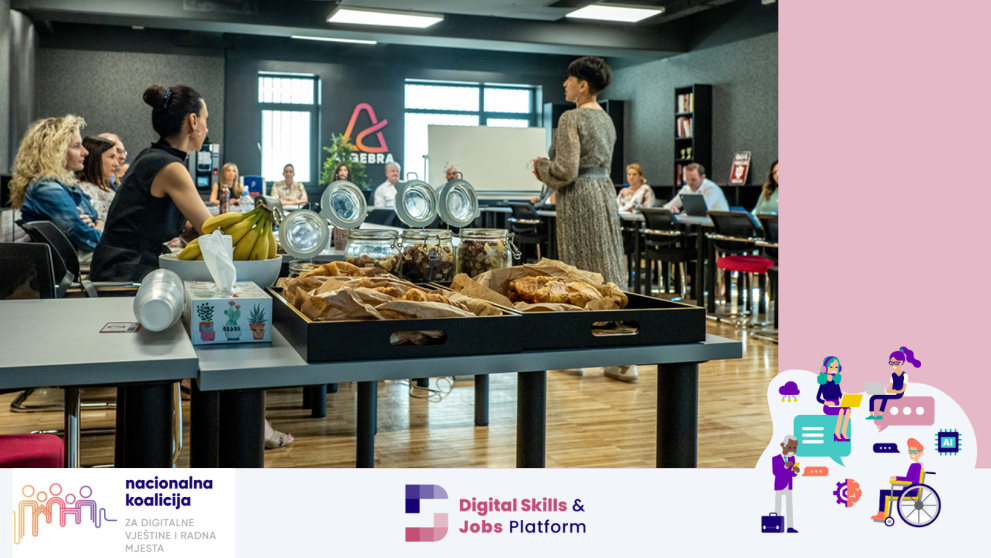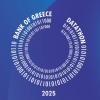Towards an innovative banking sector in Croatia: a training program for future FinTech leaders promises a bright(er) future

The Croatian banking industry has its fair share of challenges in the digital age, and end is nowhere in sight. As one of the most regulated sectors, the banking industry is subject to frequent digital checks and verifications. At the same time, FinTech is growing in popularity - and this growth has in turn triggered a number of changes shaking through the sector. Finally, banks also share some of the problems of other industries - such as difficulties in finding the best staff to fill vacant positions. The size of Croatia's relatively small labour market is another hindrance to success.
Croatian banks in the Digital Decade
Feeling the effects of the digitalisation, the banking sector is changing - fast. The preferences of banks' clients also shift, with requests for personalised services, easy cross-border and currency transfers, and needs in line with globalisation and urbanisation augmenting. Information on an entity's sustainability and corporate social responsibility levels is also often requested.
For Romana Ćaćić, Head of Division for Employee Development and Organisational Capacity in the Human Resources Management Office of the Croatian Postal Bank, the task at hand seems almost like mission impossible. Not only does bank management have to reconcile a variety of unique challenges while balancing a range of financial and privacy elements; but also has to chart a way forward for Croatian banks, enabling them to make the most out of the digital transformation openness and creativity.
FinTech training on emerging digital trends: banking sector edition
To support the development of future-proof skills and forward-looking processes across banks in Croatia, in 2023 the Croatian Postal Bank, together with Algebra University and its MBA Business School, launched an education program titled ‘Digital Skills Provision for leaders of innovatively targeted national banks in the context of the digital economy’. The program is designed specifically to address the challenges posed by the digital society and its emerging trends on the financial and banking industry and aims itself at managers, business executives, and senior level employees.
Challenges and trends of digitalisation with impact for the financial sector
The education program takes into account the particular challenges of the banking sector, taking examples from both national and global level to illustrate foundational concepts. It does not assume that the challenges identified are unique for the banking industry - but rather aims to foster specialised knowledge, fresh thinking, and an understanding of technology's disruptive effect for participants, especially in the context of an increasingly digital economy.
Whether this is learning the changing specifics of business model transformation, discussing different digitalisation topics, or learning about the main theoretical aspects underpinning the trends we see in a digital society, soft skills - such as leadership, critical thinking, or problem-solving - can be found throughout different modules and themes.
A one-size-fits-all-employees versus a more tailored approach?
According to staff working in the School of Management and Business Administration in Algebra, tailor-made training is gaining popularity with more and more companies across industries in Croatia requesting this as part of planned learning activities. This also has links to understanding better employees' needs, and designing strategies to develop skillsets the organisation may need.
For Arsen Šolić, e-Leadership manager at Algebra High College, this is perhaps the biggest challenge out there: education and training programs are becoming more demanding, and companies that want to involve employees in digital education need to have the funding, expertise, and even motivation to maintain it. This includes encouraging employees to develop further and getting them to experience knowledge areas that may not have appeared available or interesting before, thereby discovering new strengths.

Informed and data-driven decision-making for leaders in FinTech
Why this program? The goal of the joint initiative by the Croatian Postal Bank and Algebra MBA Business School extends to supporting strong future leaders with sound skillsets, who are not only more resilient in the face of fast changes and adverse circumstances, but are also much more in tune with the realities of the labour market.
The training itself is structured in the most beneficial way for bank executives and senior management - participants are taught the fundamentals of being an agile leader, main existing solutions to address concrete changes, and do a run through of major global trends. This means that while learning theory, students also develop their analytical, creative and strategic management skills.
Towards a data-driven future for the banking industry
Looking at digital technologies, knowledge areas, and skillsets, there is no denying that the major technologies of today have a large influence on day-to-day banking operations, the way employees perform work-related tasks, or even the future of the FinTech sector itself.
Romana Ćaćić explains that this effects comes from the vast amount of data in the banking sector. Data-driven decision-making, or making decisions based on multiple sets of data, is a key skill bank executives of the future will have to own. Given the dominance of digitalisation and new tech solutions, a data-driven approach allows for management organisation based on measurable, relevant, and accurate data, thereby reducing uncertainties in business operations and resulting in greater transparency and accountability at all levels of the organisation.
Digital technologies may have made it easier for us to collect and manage large volumes of data - but in order to actually make data-driven decisions within financial organisations, banking executives and employees need to have specific skills - and managers should be trained in strategies to guide employees towards problem-solving strategies.
Disruptive trends: significance and potential for the banking sector
The programme consisted of 5 modules: Strategic management for innovative and agile organisations (lecturer Greg Fisher), a Window to disruptive trends and technologies in the banking sector (Božidar Pavlović), Creative thinking and problem-solving (.prof. Dr Sc. Robert Kopal and Darija Korkut), the Digital transformation of business models (Senad Kulenović) and Leadership through the challenges of continuous disruption (Ines Bezjak Kožnjak).
Real-world cases and challenges are also being utilised for training purposes. This means participants are exposed to a wide range of examples of how digitalisation can be put into work to transform and optimise business practices, bringing tangible benefits for the organisation, while insight is extracted and used to enhance the program's usefulness.
Mock exercise: putting lessons learned into practice
Participants get the chance to develop group projects and benefit from trainer moderation, often bringing out a completely new perspective to an already ongoing project. The digitalisation of the Croatian banking sector is multi-faceted: the awareness of these different dimensions has brought additional knowledge, motivation, and a fresh perspective for each individual student.
In 2022, Croatia introduced the Euro, switching from the Croatian Kuna - an anticipated grand challenge that ended up being smooth sailing. According to Kristina Ivandić, a specialist in the Staff Development and Organisational Capacity Unit of the Human Resources Management Office, 2022 would have proven a much more challenging year had it not been for the IT sector already preparing ahead by deploying major IT developments and releases and setting the scene as early as the second half of 2020.





